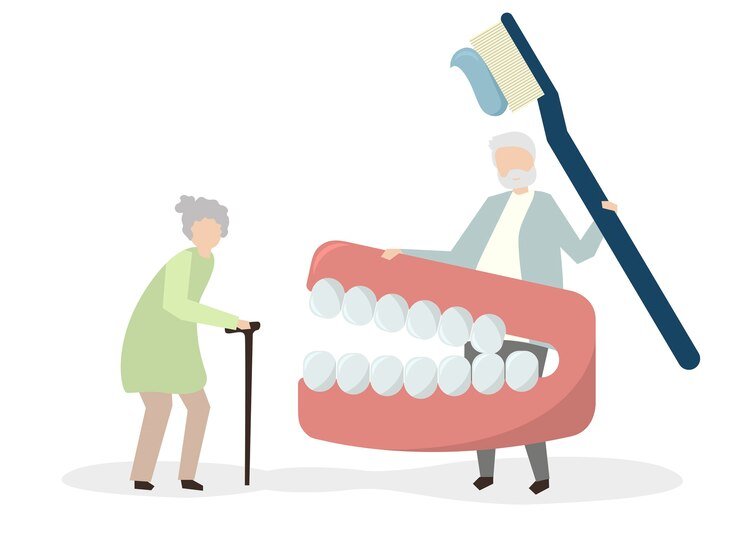8 Signs That You Need Dental Implants Immediately

8 Signs That You Need Dental Implants
Dental implants have revolutionized the world of dentistry, providing a lasting solution for people struggling with missing or damaged teeth. While many may think this option is reserved only for the elderly, dental implants cater to individuals across all age groups who face specific oral health challenges. Identifying the 8 Signs That You Need Dental Implants Early can ensure better oral health, increased confidence, and improved overall well-being.
8 Signs That You Need Dental Implants
Persistent Tooth Loss Impacts Chewing and Speaking
Losing a tooth can feel like an isolated inconvenience, but it often has cascading effects on essential functions such as chewing and speaking. Over time, the absence of one or more teeth makes these everyday activities challenging. If traditional bridges or dentures no longer meet your needs, it could signal the necessity for dental implants, which provide unparalleled stability.
Gum Disease or Tooth Decay Leaves Severe Damage
Advanced tooth decay or gum disease often causes irreparable damage to the roots of your teeth. When efforts like root canals fail to preserve them, dental implants become the next logical step. These implants replace not only the visible tooth but also the underlying root structure, ensuring long-term success.
Loose or Uncomfortable Dentures Create Frustration
Dentures can sometimes fail to deliver the comfort or stability people expect, leading to slippage while speaking or eating. Such issues often indicate that dental implants may serve as a more effective and reliable alternative. Implants anchor prosthetic teeth firmly, eliminating the fear of them shifting unexpectedly.
Facial Structure Begins to Shift or Sag
Missing teeth can result in bone loss, which directly impacts facial structure. Over time, this bone loss may cause cheeks to hollow and the face to sag, making an individual appear older than their age. Dental implants prevent further bone deterioration, ensuring a youthful, natural look.
Chronic Jaw Pain or Bite Alignment Problems Arise
Losing even a single tooth can disrupt the harmony of your bite, causing undue stress on the jaw and adjacent teeth. Jaw pain, frequent headaches, or clicking sounds when chewing are strong indicators that dental implants may be necessary. These implants restore balance by properly distributing bite forces.
Difficulty Maintaining Oral Hygiene
When teeth are missing, cleaning becomes more complicated, often leading to a buildup of plaque and tartar in hard-to-reach areas. Gaps also make neighboring teeth prone to decay and damage. Dental implants fill those spaces, making oral hygiene routines more efficient and effective.
Loss of Confidence Due to Missing Teeth
The absence of teeth can significantly impact self-esteem, causing people to feel self-conscious about smiling, laughing, or speaking in social situations. Dental implants restore not only your teeth but also your confidence, allowing you to reclaim your life with a radiant smile.
Teeth Show Visible Signs of Wear and Tear
Over time, the remaining natural teeth may overcompensate for missing ones, leading to excessive wear and tear. This accelerated damage can weaken otherwise healthy teeth. Opting for dental implants helps alleviate this undue burden, prolonging the lifespan of your natural teeth.
What Are Dental Implants?

Dental implants serve as artificial roots, usually crafted from titanium, that are surgically placed into the jawbone. Once secured, they provide a stable foundation for crowns, bridges, or dentures. Unlike other dental solutions, implants integrate with your bone, creating a permanent and robust structure that mimics the function of natural teeth.
Benefits of Choosing Dental Implants
The advantages of dental implants are numerous. They offer enhanced durability, restore full oral functionality, and blend seamlessly with existing teeth for a natural appearance. Furthermore, implants help prevent future oral health issues by supporting the jawbone and maintaining facial structure.
The Procedure: What to Expect
Getting dental implants is a multi-step process that typically includes a consultation, implant placement, and the final attachment of the artificial tooth or crown. While the timeline may vary, the results are well worth the investment, delivering a lifelong solution for tooth replacement.
Caring for Your Dental Implants
Maintaining dental implants involves routine oral hygiene practices, such as brushing, flossing, and regular dental check-ups. Unlike traditional dentures, implants do not require adhesives or frequent adjustments, making them a low-maintenance solution.
Who Is Eligible for Dental Implants?
Most individuals with good general health and sufficient jawbone density qualify for dental implants. However, a comprehensive evaluation by your dentist or oral surgeon is essential to determine the best course of action for your specific needs.
8 Signs That You Need Dental Implants
Some may worry about the cost or pain associated with dental implants. While the initial investment may seem high, implants offer unmatched longevity and durability. Moreover, advancements in dental technology have minimized discomfort during and after the procedure, ensuring a smoother experience.
Comparing Alternatives: Implants vs. Dentures
Although dentures and bridges remain viable options for tooth replacement, they lack the permanence and functionality of implants. Unlike dentures, implants do not shift or require constant upkeep, making them a superior choice for many individuals.
Long-Term Implications of Ignoring Missing Teeth
Failing to address missing teeth can result in complications like gum infections, bone loss, and further tooth damage. Taking prompt action by opting for dental implants helps mitigate these risks, preserving your oral and overall health.
The Emotional Impact of a Restored Smile
Beyond physical benefits, dental implants often transform lives by boosting emotional well-being. A restored smile fosters greater self-assurance, enabling individuals to engage fully in personal and professional relationships.
How to Get Started on Your Dental Implant Journey
Scheduling a consultation with a qualified dentist or oral surgeon is the first step in determining whether dental implants are right for you. During this visit, your medical history, oral health, and specific needs will be assessed.
Frequently Asked Questions
How long do dental implants last?
With proper care, dental implants can last a lifetime, making them a cost-effective and durable solution.
Are dental implants safe?
Yes, dental implants are considered safe and have a high success rate when performed by experienced professionals.
What is the recovery time after getting dental implants?
Recovery varies but typically takes a few months for the implant to integrate fully with the jawbone.
Do dental implants require special maintenance?
No, maintaining implants involves the same oral hygiene practices as natural teeth, such as brushing and flossing.
Can smokers get dental implants?
While smoking can affect healing, many smokers still qualify for dental implants with proper precautions.
Are dental implants covered by insurance?
Coverage varies, so it’s important to check with your provider. Some plans may partially cover the procedure.
Is the dental implant procedure painful?
Most patients report minimal discomfort due to anesthesia and modern techniques used during the process.







